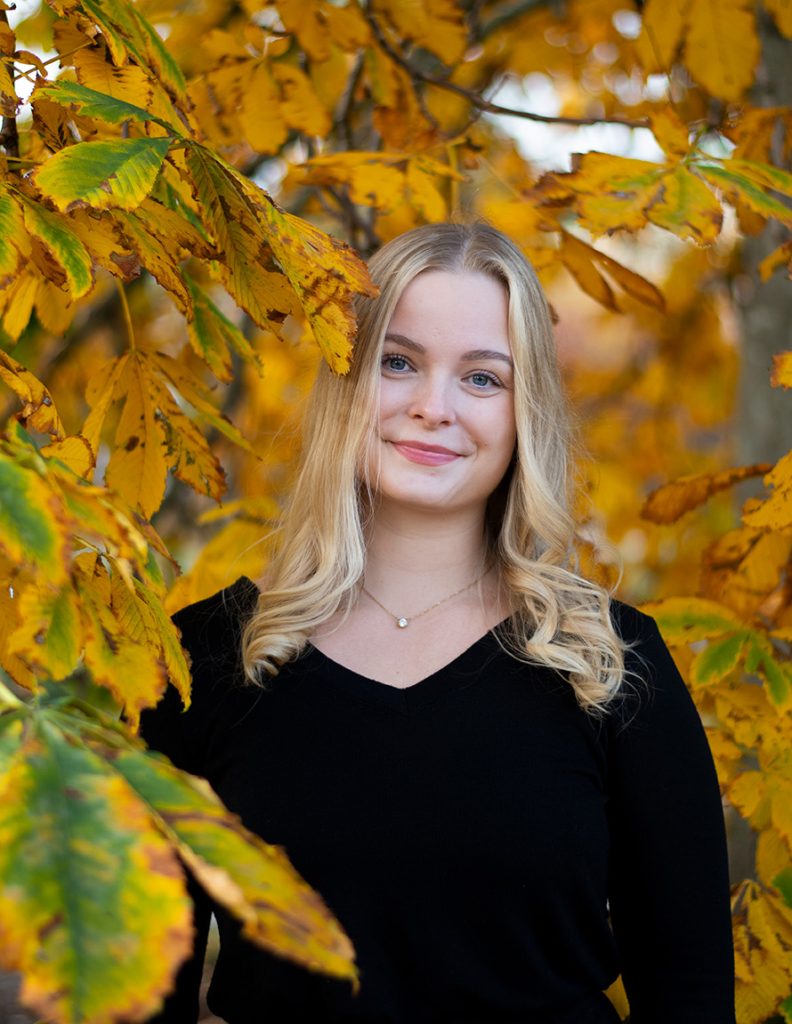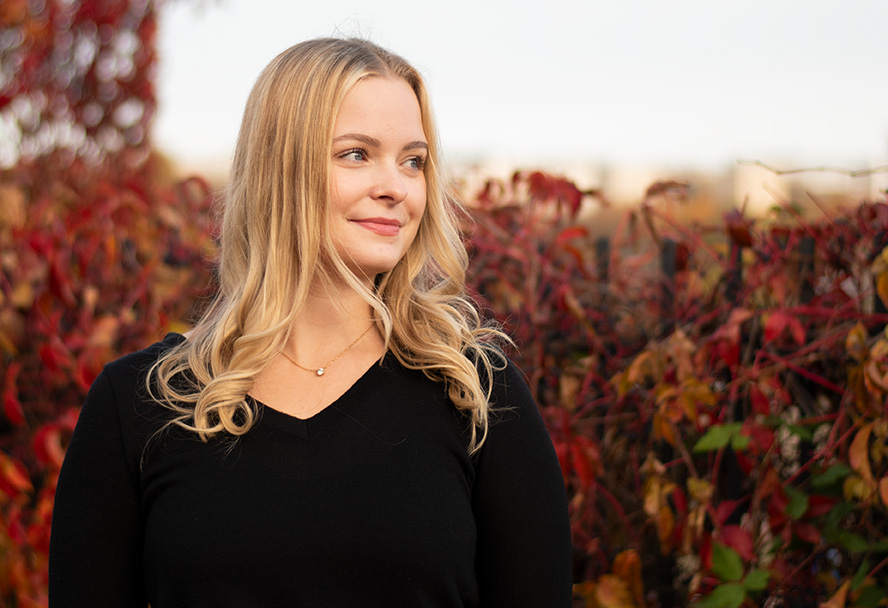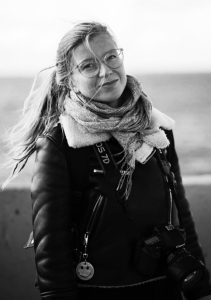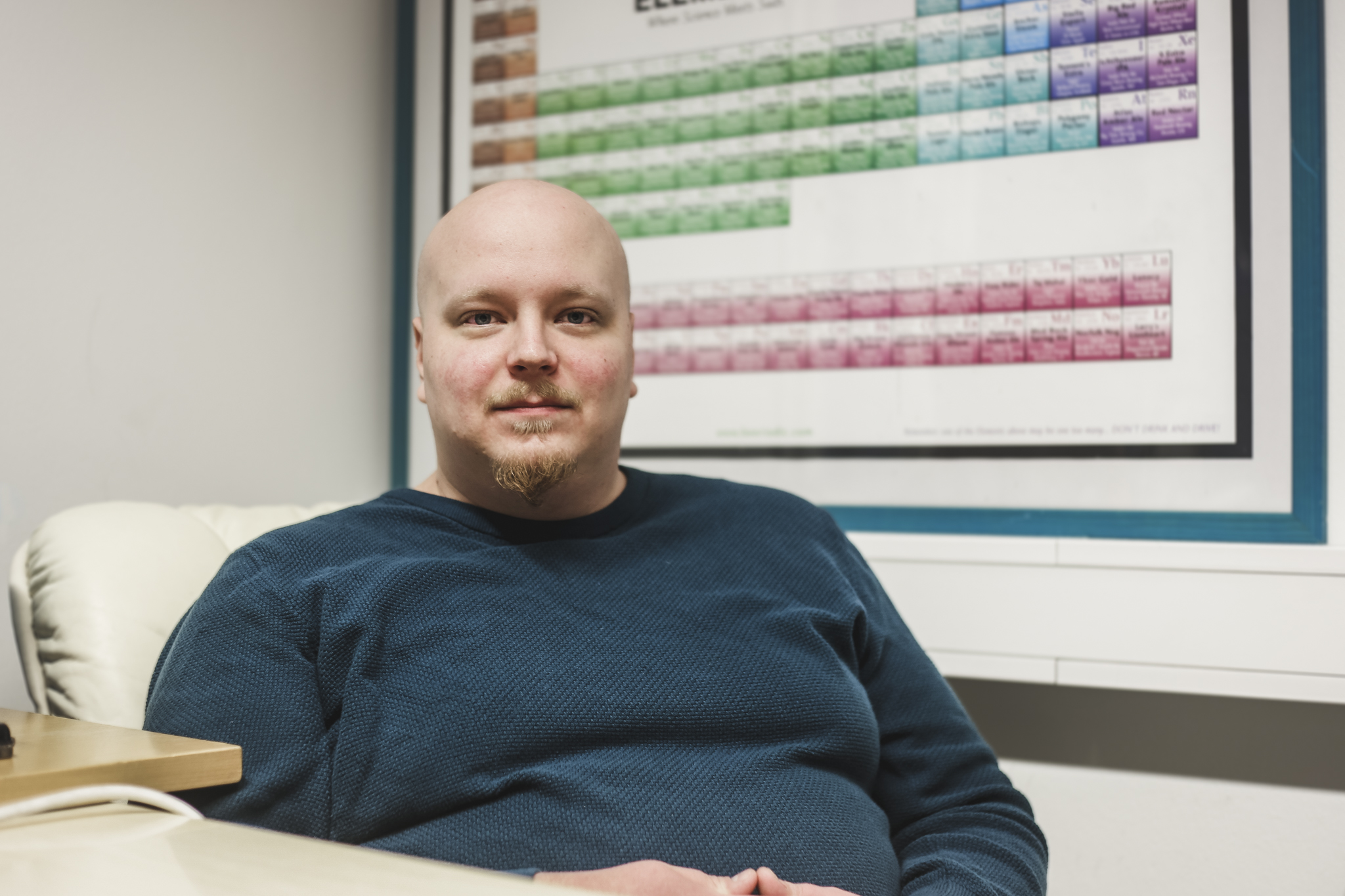At the Oulu University Gala, the Student of the Year was named for the 12th time on November 8th. The award was given to Veronica Vanhanen, a fifth-year student of Industrial Engineering and Management.
“I was completely surprised! But it feels good to be rewarded,” Vanhanen comments after being named.
Oulu native Veronica Vanhanen has been selected as Student of the Year after meeting multiple of the selection criteria. She has actively contributed to building a sense of community within her subject society and as a tutor. Rauhala-klubi, the alumni club for former Student Union actives, which nominated Vanhanen for the Student of the Year title, cites her active role in mentoring both first-year students and master’s level students, as well as her efforts to inspire other students to participate in subject society events and take on leadership roles within the society.
Rauhala-klubi believes that in the post-pandemic years, low-threshold activities that bring students together are invaluable in fostering a sense of unity within the university community. The University of Oulu has been fortunate to have students like Vanhanen, who enable enjoyable activities and encourage others to join.
“Veronica genuinely cares about the well-being of her student guild and motivates both new and senior students to participate in events. She is one of the most prominent figures from her year in the university community. Vanhanen has progressed with her studies and has maintained good grades. She graduated with a Bachelor of Science in Technology last year,” says Rauhala-klubi. Based on these merits, Rauhala-klubi nominated Veronica Vanhanen as Student of the Year. The awardee is selected by the University of Oulu Association based on the nomination of the Rauhala-klubi.
Student life
Vanhanen chose to study industrial engineering and management in her hometown for two reasons. Her high school guidance counselor recommended the field, and she was already interested in technology, human behavior and sustainable business. Additionally, she had her loved ones and a job in Oulu. On top of that, the great stories about student life in Oulu convinced her that she didn’t need to leave her hometown to continue her studies.
During her freshman year, Vanhanen was interested in guild activities and wanted to be involved. During that time, she became the guild room manager, partly by chance and partly due to persistent persuasion. Her responsibilities included ensuring that there were enough coffee and treats for the students.
After her freshman year, Vanhanen took a break from her role, spending that year actively attending events as a member of the guild. During this time, her interest in the guild’s board activities grew, and she began thinking about ways to improve the guild’s activities and develop the academic experience from a student perspective.
“I believe that a subject society is one of the most important pillars supporting students during their studies. It connects students in the field and, at its best, promotes their well-being,” Vanhanen shares.
After her year off, Vanhanen returned to the guild activities as an academic affairs representative, serving as a liaison between students and faculty.
Active life outside of studies
Since 2011, the Student of the Year award recipient is expected to not only make good academic progress, but also actively contribute to the university community. The Student of the Year motivates, inspires and encourages others with their own actions.
During her studies, Vanhanen was also involved in organizing sports nights at Toppila Reenis. She also helped organize after work events at Teerenpeli. These events were popular during the time when gatherings were restricted by COVID guidelines. Social events that promoted community spirit were also organized to play badminton, tennis and board games, as well as communal movie nights.
“I think that it’s important for the student community to offer diverse activities, so that everyone could have an opportunity to participate in activities that interest them. Be that ice hockey games at Niittyaro or badminton games at Nallisport or student events in general, such a sittnings, orienteering events and rowing competitions,” Vanhanen says.
Vanhanen’s motivation to bring people together stems from her personal positive experiences of how older students welcomed her and her fellow classmates, inviting them to participate in shared events. There was a warm and inclusive atmosphere among her peers.
These events left her with wonderful memories and stories to tell. One amusing incident happened when a casual suggestion at a student event led to the group to spontaneously book tickets for a trip to Italy.
“As part of my New Year’s resolution, I said ‘yes’ instead of ‘no’. We bought the tickets, and the next day, I already regretted my decision because I’m not usually spontaneous with things like this”, Vanhanen says.
“But on the day of departure, as soon as the train started moving, all my worries disappeared, and it turned out to be one of the most fun trips I’ve ever had”, she continues and adds:
“There were students from three different year groups on the trip, and I didn’t even know all my travel companions that well. Now, we’re really great friends.”

From Oulu to Helsinki
This summer, Veronica Vanhanen moved to Helsinki to complete her master’s thesis in industrial engineering and work in her field. She also began business studies at Aalto University. When applying to study industrial engineering, she had long considered business studies as an alternative.
“I spent a long time deciding between these fields, and now I get to pursue both!”
After working for a while, Vanhanen’s interest in economic phenomena grew, and she wanted to deepen her understanding of numbers and strategic work. A strategy course during her industrial engineering studies cemented her decision to enter the business field.
“From my understanding, combining engineering and business studies has become more common in general. I’m naturally curious and have always been eager to learn new things and develop myself, so pursuing further studies felt natural. Who knows, maybe someday I’ll end up studying psychology too, as I’m interested in that as well.”
Her study spot at Aalto was secured through her GPA, an application letter, and an interview.
During her free time, Vanhanen remains active in bringing people together. She spends time with friends going jogging and working out. She has competed in figure skating at the national level, and her future dreams include coaching figure skating. However, balancing studies, work and stable daily life requires planning.
“The two cornerstones for managing all of this are balance and prioritization. Prioritization is essential for time management, as I realize that I can’t give 100% to everything, or there just wouldn’t be enough hours in the day. By balance, I mean life management and finding a counterweight to responsibilities – in my case, a healthy mix of exercise, social activities, and personal time. The importance of these has really become clear in recent years.”
An active guild is an asset
Vanhanen occasionally visits Oulu to catch up with both old and new guild members. Compared to other engineering guilds, the industrial guild is small, with only 45 bachelor’s students and around 20 master’s students admitted each year. Vanhanen thinks that the small size of the guild has made it easy to get to know everyone, which has been a real asset for the students.
As for the future, Vanhanen isn’t planning to stress. She believes that things tend to work out and describes her outlook on the future as “go with the flow”, reflecting the approach of this year’s Student of the Year. In the near future, her goal is to work for a company with aligned values, where she can make most of her skills.
“Initially, I plan to focus on building and developing my career, and much later on, I’ll see if I’m interested in pursuing a PhD, for example. But for now, I feel like I’ve had my fill of studying, and my focus is set on entering the workforce, even though student life is such a great time.”
VERONICA VANHANEN
- She was named as the Student of the Year on November 8th 2024.
- Age 25 years old
- Lives in Helsinki with her boyfriend
- A fifth-year industrial engineering student with a Bachelor of Science in Technology, studying business at Aalto University.
- Hobbies include jogging, the gym and figure skating.
- Has competed in figure skating on Finnish national level, dreams of coaching figure skating.
Translation by Anna Tiira.















